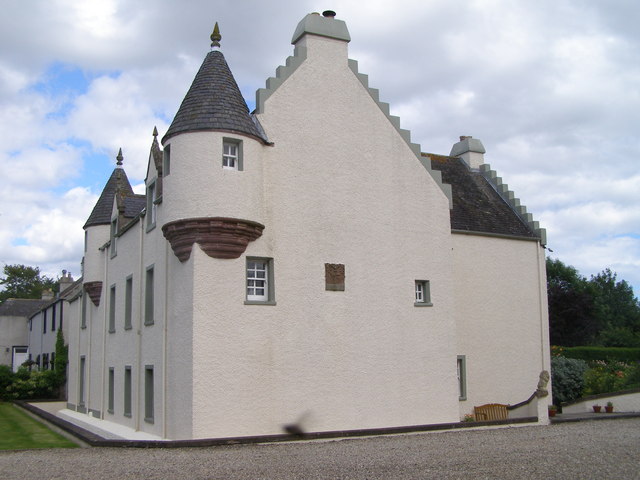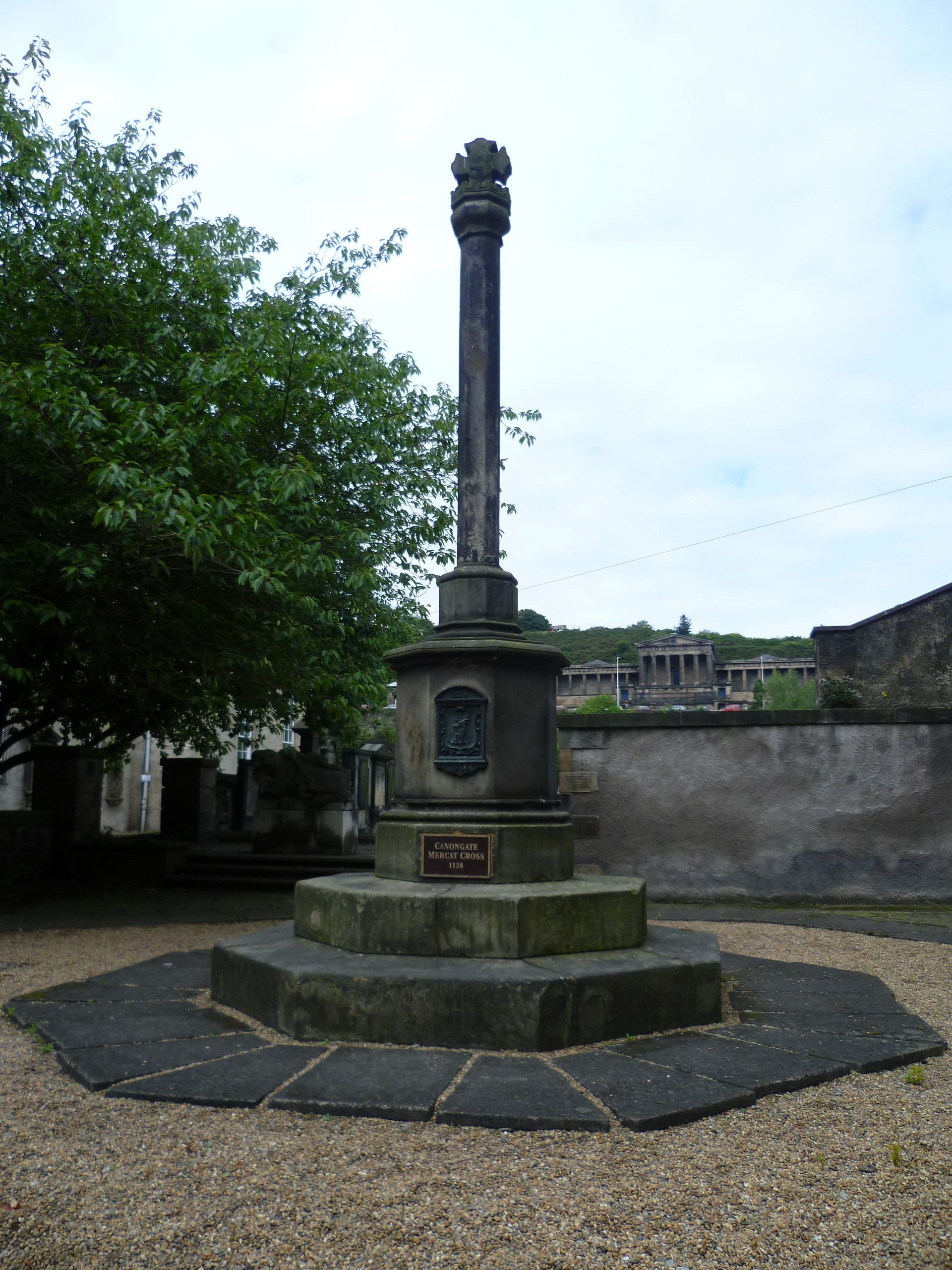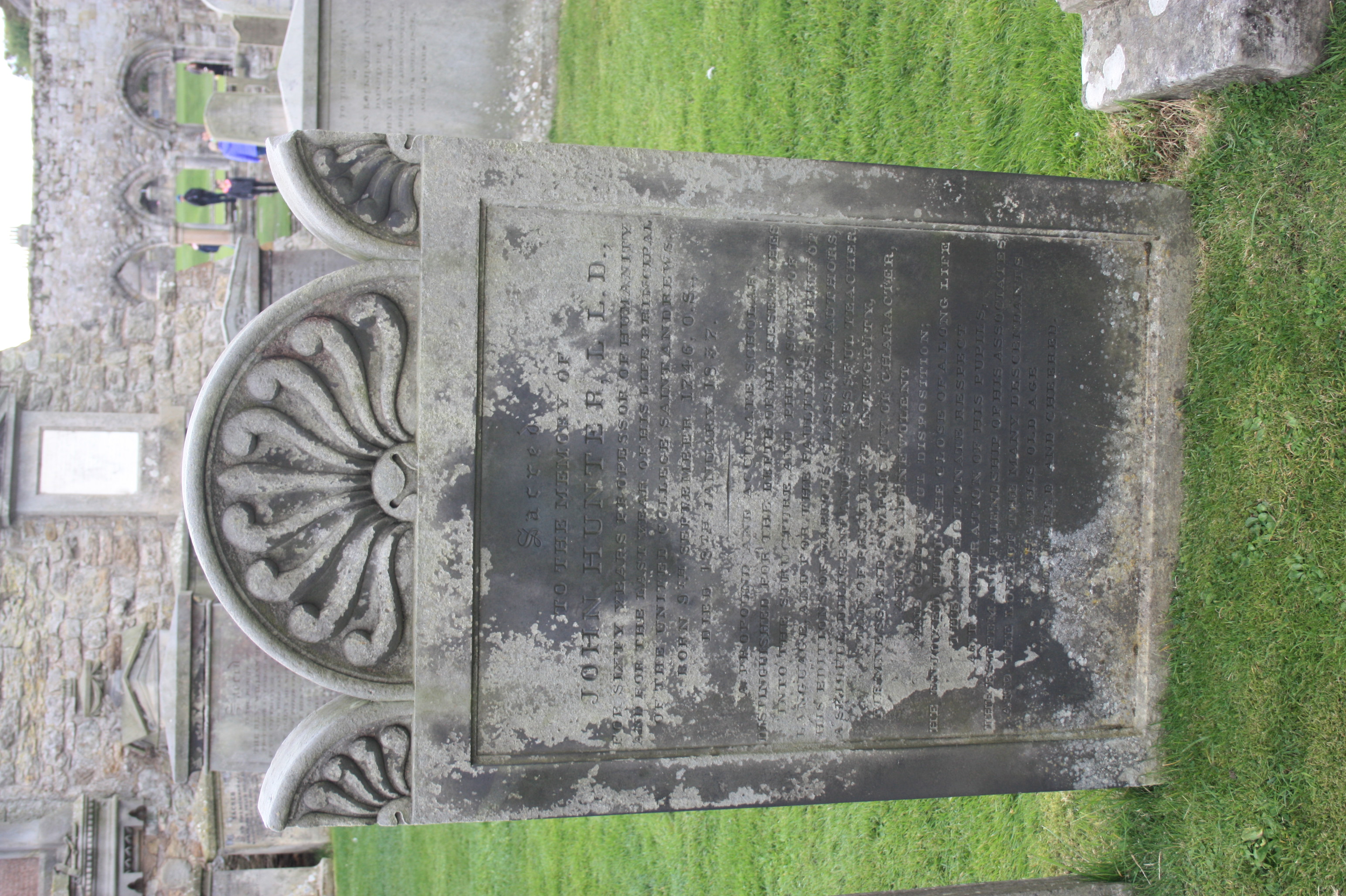|
Monboddo
James Burnett, Lord Monboddo (baptised 25 October 1714; died 26 May 1799) was a Scottish judge, scholar of linguistic evolution, philosopher and deist. He is most famous today as a founder of modern comparative historical linguistics. In 1767 he became a judge in the Court of Session. As such, Burnett adopted an honorary title based on the name of his father's estate and family seat, Monboddo House. Monboddo was one of a number of scholars involved at the time in development of early concepts of biological evolution. Some credit him with anticipating in principle the idea of natural selection that was read by (and acknowledged in the writings of) Erasmus Darwin. Charles Darwin read the works of his grandfather Erasmus and later developed the ideas into a scientific theory. Early years James Burnett was born in 1714 at Monboddo House in Kincardineshire, Scotland. After his primary education at the parish school of Laurencekirk, he studied at Marischal College, Aberdeen, fro ... [...More Info...] [...Related Items...] OR: [Wikipedia] [Google] [Baidu] |
Monboddo House
Monboddo House () is a historically famous mansion in The Mearns, Scotland. The structure was generally associated with the Burnett of Leys family. The property itself was owned by the Barclay family from the 13th century, at which time a tower house structure was erected. In 1593, the Laird was James Strachan, and thence it passed into the Irvine family and thereafter the Burnetts of Leys. There is a notable datestone adornment on the structure with the arms of Irvine impaling the arms of Douglas with initials R.E. and I.E. and dated 1635, representing the 17th-century couple who reconstructed the house, Robert Ervine ( ''sic'') and Ilizabeth Ervine ( ''sic''). Monboddo House, with its crow-stepped gable design, is situated in the Howe of Mearns near the village of Auchenblae approximately nine miles (14 km) from the North Sea. The original landholding of the Monboddo Estate was approximately . In 1714 the well-known judge and philosopher James Burnett, Lord Monb ... [...More Info...] [...Related Items...] OR: [Wikipedia] [Google] [Baidu] |
Elizabeth Burnett
Elizabeth (Eliza) Burnett (1766 – 17 June 1790) was the younger daughter of the Scottish judge and philosopher James Burnett, Lord Monboddo, and a famous Edinburgh beauty of the late 18th century. She is remembered as the young woman who is celebrated by the Scottish poet Robert Burns in his "Address to Edinburgh" (1786) and his "Elegy on The Late Miss Burnet of Monboddo" (1791), which Burns wrote after her early death from consumption (tuberculosis) at the age of 24. The National Gallery of Scotland includes a drawing of Miss Elizabeth Burnett. https://www.nationalgalleries.org/art-and-artists/6807/miss-elizabeth-burnett-1766-1790-daughter-lord-monboddo Life Burnett was probably born at the family seat of Monboddo House in Kincardineshire. Her mother, also named Elizabeth or Elizabethe (born Farquharson), died soon after giving birth to her. She is said to have met the poet Burns in the foyer of Edinburgh's Canongate Theatre and to have cemented their relationship at anoth ... [...More Info...] [...Related Items...] OR: [Wikipedia] [Google] [Baidu] |
Canongate
The Canongate is a street and associated district in central Edinburgh, the capital city of Scotland. The street forms the main eastern length of the Royal Mile while the district is the main eastern section of Edinburgh's Old Town. It began when David I of Scotland, by the Great Charter of Holyrood Abbey c.1143, authorised the Abbey to found a burgh separate from Edinburgh between the Abbey and Edinburgh. The burgh of Canongate that developed was controlled by the Abbey until the Scottish Reformation when it came under secular control. In 1636 the adjacent city of Edinburgh bought the feudal superiority of the Canongate but it remained a semi-autonomous burgh under its own administration of bailies chosen by Edinburgh magistrates, until its formal incorporation into the city in 1856. The burgh gained its name from the route that the canons of Holyrood Abbey took to Edinburgh—the canons' way or the canons' gait, from the Scots word ''gait'' meaning "way". In more modern ... [...More Info...] [...Related Items...] OR: [Wikipedia] [Google] [Baidu] |
Henry Home, Lord Kames
Henry Home, Lord Kames (169627 December 1782) was a Scottish writer, philosopher, advocate, judge, and agricultural improver. A central figure of the Scottish Enlightenment, a founding member of the Philosophical Society of Edinburgh, and active in the Select Society, he acted as patron to some of the most influential thinkers of the Scottish Enlightenment, including the philosopher David Hume, the economist Adam Smith, the writer James Boswell, the chemical philosopher William Cullen, and the naturalist John Walker. Biography He was born at Kames House, between Eccles and Birgham, Berwickshire, son of George Home of Kames House. He was educated at home by a private tutor until the age of 16. In 1712 he was apprenticed as a lawyer under a Writer to the Signet in Edinburgh, was called to the Scottish bar as an advocate bar in 1724. He soon acquired reputation by a number of publications on the civil and Scottish law, and was one of the leaders of the Scottish Enlighte ... [...More Info...] [...Related Items...] OR: [Wikipedia] [Google] [Baidu] |
University Of Aberdeen
The University of Aberdeen ( sco, University o' 'Aiberdeen; abbreviated as ''Aberd.'' in List of post-nominal letters (United Kingdom), post-nominals; gd, Oilthigh Obar Dheathain) is a public university, public research university in Aberdeen, Scotland. It is an Ancient universities of Scotland, ancient university founded in 1495 when William Elphinstone, Bishop of Aberdeen and Lord Chancellor of Scotland, Chancellor of Scotland, petitioned Pope Alexander VI on behalf of James IV of Scotland, James IV, King of Scots to establish King's College, Aberdeen, King's College, making it Scotland's 3rd oldest university and the 5th oldest in the English-speaking world and the United Kingdom. Aberdeen is consistently ranked among the top 160 universities in the world and is ranked within the top 20 universities in the United Kingdom according to ''The Times'' and ''The Sunday Times'', and 13th in the UK according to ''The Guardian''. The university comprises three colleges—King's College ... [...More Info...] [...Related Items...] OR: [Wikipedia] [Google] [Baidu] |
David Hume
David Hume (; born David Home; 7 May 1711 NS (26 April 1711 OS) – 25 August 1776) Cranston, Maurice, and Thomas Edmund Jessop. 2020 999br>David Hume" ''Encyclopædia Britannica''. Retrieved 18 May 2020. was a Scottish Enlightenment philosopher, historian, economist, librarian, and essayist, who is best known today for his highly influential system of philosophical empiricism, scepticism, and naturalism. Beginning with '' A Treatise of Human Nature'' (1739–40), Hume strove to create a naturalistic science of man that examined the psychological basis of human nature. Hume argued against the existence of innate ideas, positing that all human knowledge derives solely from experience. This places him with Francis Bacon, Thomas Hobbes, John Locke, and George Berkeley as an Empiricist. Hume argued that inductive reasoning and belief in causality cannot be justified rationally; instead, they result from custom and mental habit. We never actually perceive that one event caus ... [...More Info...] [...Related Items...] OR: [Wikipedia] [Google] [Baidu] |
Erasmus Darwin
Erasmus Robert Darwin (12 December 173118 April 1802) was an English physician. One of the key thinkers of the Midlands Enlightenment, he was also a natural philosopher, physiologist, slave-trade abolitionist, inventor, and poet. His poems included much natural history, including a statement of evolution and the relatedness of all forms of life. He was a member of the Darwin–Wedgwood family, which includes his grandsons Charles Darwin and Francis Galton. Darwin was a founding member of the Lunar Society of Birmingham, a discussion group of pioneering industrialists and natural philosophers. He turned down an invitation from George III to become Physician to the King. Early life and education Darwin was born in 1731 at Elston Hall, Nottinghamshire, near Newark-on-Trent, England, the youngest of seven children of Robert Darwin of Elston (1682–1754), a lawyer and physician, and his wife Elizabeth Hill (1702–97). The name Erasmus had been used by a number of his f ... [...More Info...] [...Related Items...] OR: [Wikipedia] [Google] [Baidu] |
John Hunter (classicist)
John Hunter FRSE (7 September 1746 – 18 January 1837) was a Scottish classicist and horticulturalist. In 1783 he was a joint founder of the Royal Society of Edinburgh. Life Hunter was born in Closeburn, Dumfries and Galloway on 7 September 1746. He was educated nearby at Wallace Hall School. He was then attended the University of Edinburgh, graduation with an MA in 1768. His first role was as private secretary to Lord Monboddo. In 1775 he then accepted the role of Professor of Humanity at the United College in University of St Andrews, continuing in this role until 1826. In 1826 (aged 80) he took on the role of Principal of the twin colleges of St Leonards and St Salvators at the University. The University of Edinburgh awarded him an honorary doctorate (LLD) in later life. He died at St Andrews on 18 January 1837, and is buried in St Andrews Cathedral churchyard. Family He married twice, firstly around 1770 to Elizabeth Miln and together they had a son, James Hunter (177 ... [...More Info...] [...Related Items...] OR: [Wikipedia] [Google] [Baidu] |
University Of Groningen
The University of Groningen (abbreviated as UG; nl, Rijksuniversiteit Groningen, abbreviated as RUG) is a Public university#Continental Europe, public research university of more than 30,000 students in the city of Groningen (city), Groningen in the Netherlands. Founded in 1614, the university is the second oldest in the country (after Leiden University, Leiden) and one of the most traditional and prestigious universities in the Netherlands. The institution has been consistently ranked among the top 100 universities in the world, according to leading ranking tables. In the 2022 Aggregate Ranking of Top Universities, RUG is ranked fourth in the Netherlands. The University of Groningen has eleven Faculty (division), faculties, nine graduate schools, 27 research centres and institutes, and more than 175-degree programmes. The university's alumni and faculty include Johann Bernoulli, Aletta Jacobs, four Nobel Prize winners, nine Spinoza Prize winners, one Stevin Prize winner, variou ... [...More Info...] [...Related Items...] OR: [Wikipedia] [Google] [Baidu] |
Greyfriars Kirkyard
Greyfriars Kirkyard is the graveyard surrounding Greyfriars Kirk in Edinburgh, Scotland. It is located at the southern edge of the Old Town, adjacent to George Heriot's School. Burials have been taking place since the late 16th century, and a number of notable Edinburgh residents are interred at Greyfriars. The Kirkyard is operated by City of Edinburgh Council in liaison with a charitable trust, which is linked to but separate from the church. The Kirkyard and its monuments are protected as a category A listed building. History Greyfriars takes its name from the Franciscan friary on the site (the friars of which wear grey habits), which was dissolved in 1560. The churchyard was founded in August 1562 after Royal sanction was granted to replace the churchyard at St Giles' Cathedral in Edinburgh. The latter burial ground was not used after around 1600. The Kirkyard was involved in the history of the Covenanters. The Covenanting movement began with signing of the National Cov ... [...More Info...] [...Related Items...] OR: [Wikipedia] [Google] [Baidu] |
Marischal College
Marischal College ( ) is a large granite building on Broad Street in the centre of Aberdeen in north-east Scotland, and since 2011 has acted as the headquarters of Aberdeen City Council. However, the building was constructed for and is on long-term lease from the University of Aberdeen, which still uses parts of the building to store its museum collections. Today, it provides corporate office space and public access to council services, adjacent to the Town House, the city's historic seat of local government. Many Aberdonians consider Marischal College to be an icon of the "Granite City" and to symbolise the zenith of Aberdeen's granite-working industry. The construction of the modern college building began in 1835, following the demolition of previous buildings on the site, and was completed in its present form in the early 1900s. It is the second largest granite building in the world. Formerly the seat of the Marischal College and University of Aberdeen founded in 1593, the b ... [...More Info...] [...Related Items...] OR: [Wikipedia] [Google] [Baidu] |
Elegy
An elegy is a poem of serious reflection, and in English literature usually a lament for the dead. However, according to ''The Oxford Handbook of the Elegy'', "for all of its pervasiveness ... the 'elegy' remains remarkably ill defined: sometimes used as a catch-all to denominate texts of a somber or pessimistic tone, sometimes as a marker for textual monumentalizing, and sometimes strictly as a sign of a lament for the dead". History The Greek term ἐλεγείᾱ (''elegeíā''; from , , ‘lament’) originally referred to any verse written in elegiac couplets and covering a wide range of subject matter (death, love, war). The term also included epitaphs, sad and mournful songs, and commemorative verses. The Latin elegy of ancient Roman literature was most often erotic or mythological in nature. Because of its structural potential for rhetorical effects, the elegiac couplet was also used by both Greek and Roman poets for witty, humorous, and satirical subject matter. Oth ... [...More Info...] [...Related Items...] OR: [Wikipedia] [Google] [Baidu] |




.jpg)



.jpg)

